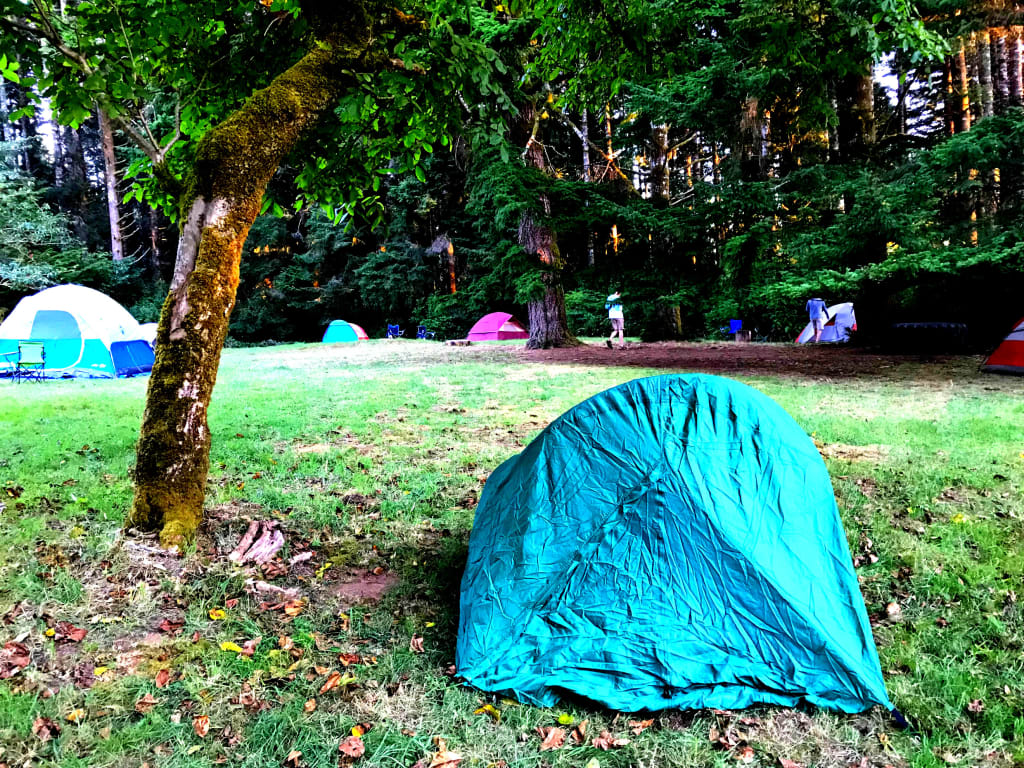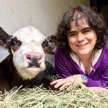Autism Friends and Family Camp
Camp isn't just for kids anymore!

Being an adult with autism, who is on the higher end of the spectrum as far as independence goes, is a unique experience. Here is how I sometimes try to explain it to people.
Imagine that you have a condition that causes you to have difficulty walking and moving around. On some days, you may need to use a cane or even a wheelchair to get around. On other days, you may be able to move around pretty well, but with a limp. There may be days that you just need to stay at home. And sometimes, if the planets are aligned just right, you may feel great! Now imagine that people, including your family members, frequently tell you that you need to try harder to be mobile. They implore you to leave your wheelchair at home when you go out in public with them, and they get embarrassed if you limp. They remind you to stand up straighter and walk more quickly. Because they've seen you walking, people sometimes tell you, "There is no way you have a disability! You're just trying to get attention!" They may say, "Everyone has aches and pains sometimes. It's just part of life." You need to have a job in order to survive, but you've found that, in order to get and keep a job, you need to blend in with the others who are walking just fine. You leave your wheelchair and cane at home, and you force yourself to walk around quickly all day, trying to appear like everyone else. By the end of the day, you are exhausted and in pain.
Now, imagine that, for a few days each summer, you get to go to a place where everyone has the same condition as you do. Some of them have to use their wheelchairs and canes constantly, and some of them can walk almost all of the time, but all of them have difficulty moving and getting around. For these three days, you live in a world meant for people who have mobility challenges. Nobody gives you a strange look, or tells you to walk more quickly, or criticizes you for using your wheelchair too often. You can just be you.
That's what autism camp is like.
The camp I go to is unique, in that people of all ages can go. Parents bring their children. Adults come on their own. People who live in group homes come with their caregivers. At camp, every single person understands autism. Almost all of the staff members have autism as well.
When I look around at camp, I see reflections of aspects of myself, everywhere. I see people humming and flapping and pacing and rocking and spinning, to their hearts' content. Nobody gives them sideways glances or tells them to knock it off. I saw a 60-year-old man who had autism and mobility challenges, getting help from a lifeguard so he could walk around in the lake, saying it was the best day of his life. I saw children with and without autism, all playing together, with nobody getting bullied or left out.
If I feel like being alone at camp, I can go into the "stim room," which is a darkened cabin with lots of twinkling lights and giant pillows. Or I can just take a book and go sit by the water, or go sit in the main lodge and color in one of the many coloring books that people of all ages are always using. Nobody pushes me to be more social. When I want to participate in an activity, I just have to show up and join in. There is no pressure to make small talk, or to talk at all.
If I do want to talk, I tend to get right to the heart of things. I talk about having autism. People here understand that I have autism all the time. It is with me twenty-four hours a day, seven days a week. It is a large part of me. I don't hate it...but it does seep into many of my conversations, because it is just always there. At camp, nobody looks surprised or uncomfortable when I talk about having autism.
I saw a man there with a skin flap that covered up his entire left eye, making it look like he had no eye socket there at all. A kid, about 12-years-old, asked the man's caregiver about it. The caregiver explained what caused the skin flap. "It does look curious, doesn't it? He doesn't mind if you ask about it. He does mind if people whisper about it or say mean things about it."
The kid nodded, understanding perfectly. "I have autism," he said.
"We know," said the caregiver. "So does he."
It just felt so natural, and lovely, and welcoming.
It is hard to come back to "reality," and have to remember to pretend to be "normal" again.
About the Creator
Angel Mann
I am an alien. I’ve been diagnosed with autism and ADHD, which explain some but not all aspects of my life. Maybe I really am from a different planet. Until that planet is discovered, I have to learn to survive here on Earth.






Comments
There are no comments for this story
Be the first to respond and start the conversation.